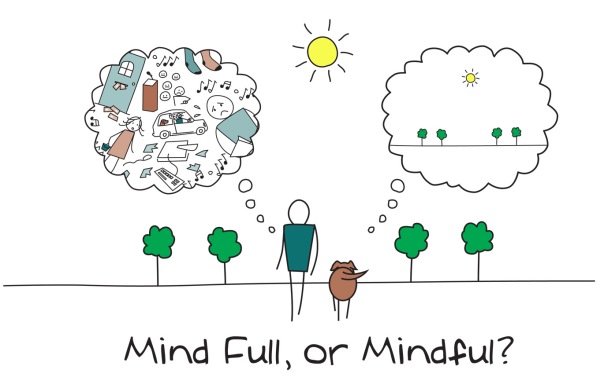When I was in my early teens in California, the Vietnam War was raging and the country was dividing up. Our living room was divided, too. My father was disturbed that Aretha Franklin was playing on the radio, not to mention those haircut-challenged Beatles. And periodically, KWOW, the little country music radio station whose tower was about a mile away across the soon-to-be-tract-homed fields outside our front window, would invade the AM airwaves with something like Marty Robbins singing “Ain’t I right?” — written to warn the nation about Freedom Riders deluding Southerners. It is safe to say the U.S. has been a mess throughout my lifetime when it comes to peace and love, and most of the other things that feed our souls. We still really need each other and we can’t get together.
Code switching as a survival tool
I learned some mild code switching in my diverse and diversifying environment before I found out how important the skill was to people who did not fit into artificial norms. I was friends with the “hard guys” whose relatives exclusively spoke Spanish. I could hang with the jocks. And I knew how to stay out of trouble with my redneck relatives. I was integrating my living room. At the same time, I also discovered Jesus and began to learn how He transcends all the competing cultures and identities vying for affirmation and power. He has a surprising knack for getting people together who just do not belong together as far as the world is concerned. He provides each of us access to a common “code” that is a rock for us in a stormy cultural sea.
Code switching never seems to work that well, anyway. Sociologists filled up volumes talking about “alienation” until Jimmy Carter got himself fired for admitting to the national “malaise” in a TV speech. But the the lack of further honesty did not mean people felt any less left out of society and even out of connection with their own bodies. People are no more confident now than when Carter pointed out they weren’t. Sociologists have filled up even more pages about all sorts of oppressions and separations right down to assessing the commonplace indignities called microaggressions, which communicate slights and insults toward one’s supposed category.
So my personal history has been on a parallel track with people bearing the fruit of their obsession with the microaggressions they experience. The closest I got to this in my young, privileged days was feeling weird that my name is “Rodney.” People seemed to think it was odd. I never met another Rodney face to face until I arrived in PA and two were in my congregation. In California, I only knew about Rodney Allen Rippy and my dad didn’t much approve of him, either. We all think we are weird. We need community desperately so we don’t get carried away with our alienation. I even needed some Rodneys.
Such confessions sometimes lead to connection
The other day Bethany told our Coordinating Group an interesting story about moving from alienation to community. A conversation with a new co-worker turned out to be a loving meeting of the weirds. She said I could relay it to you:
I had a really interesting conversation with a coworker yesterday that I think you all should know about. My colleague asked me about an idea that he had, he wanted to teach a workshop on “code switching” to our predominantly Black and queer residents. I was typing an email as he was talking to me and I immediately stopped in my tracks. Lol. I explained to him that for me, I hear code switching as a way of asking people of color but especially Black people to assimilate to concepts of “respectability” in speech. I added that “code switching” is really a symptom of systemic racism (I try not to use the language of white supremacy a lot because that can be really off putting but… I really wanted to say that it’s a symptom of white supremacy). He went on to say that as a queer man, he views code switching as a means of safety and survival.
We continued talking and even really got emotional as we talked about our identities with one another. I confessed that I never feel Black enough for other Black women (I was home-schooled, I grew up in the suburbs, my name is Bethany… lol) and because of systemic racism, I will also never truly be understood or accepted by White people either. He said that he never feels gay enough for gay men and that gay men don’t take him seriously. And, he never feels straight enough for straight people either. A few moments later, we simultaneously said “it’s exhausting.”
I’m telling you this story because I was so grateful to connect with such a beautiful stranger so deeply and to even be able to tear up with one another. But, I’m also super grateful to belong with all of you. Even with our differences of experiences, lifestyles, etc., because we belong to Jesus and that serves as the crux of our foundation, I feel like we also belong to each other. I’m grateful for that.
Have you all read this article about community care? I think it unintentionally describes our Circle of Hope and our cell movement. Check it out.
Weird, code-switching people need community
The article Bethany mentioned is Self-care isn’t enough. We need community care to thrive. As I read it, I said to myself, “Can this really be a thing?” Listen to this revelation:
“The term community care is known in social movements and in the nonprofit world but has yet to move into mainstream culture. The concept shouldn’t be that hard to translate: Community care is basically any care provided by a single individual to benefit other people in their life. This can take the form of protests, for which community care is best known, but also simple, interpersonal acts of compassion.”
Sociologists are now filling up pages with thoughts about how caring for someone other than yourself needs to “move into mainstream culture?!”
I suppose I should not be surprised. The task of “mainstream culture” during my lifetime has been to promise everyone individual freedom in service to the ultimate, capitalist strategy to divide and conquer, right down to our conflicted senses of who we are as persons. I’m with Bethany. I’m glad that I have an alternative to that exhausting daily onslaught. I spent a good chunk of my adulthood trying to be a part of the alternative — a whole counterculture called Circle of Hope that not only holds on to community care, but has the spiritual power to offer it as a gift to the hollowed out U.S. society.

Queer philosophy helps to change things
My quest to be part of the Lord’s alternative was furthered when I recently came upon Pamela Lightsey, a queer theologian who articulately describes her resistance to being labelled according to her sexual identity. She’s all right with fighting her way out of the individual box in which society has tried to trap her, but she is not accepting the box as truth. She is larger than popular dichotomies. She insists on being considered a whole person and certainly not considered according to what she does or does not do in the bed. I am happy that the LGBTQ community has grown this resistance to all the labels of the hypermodern era, by which I think they may have been most damaged by the powers seeking to define and dominate everything.
Now we have this rambunctious new term in political and academic contexts: “queer.” It is a term that calls into question the stability of identity based on sexual orientation. In this sense, “queer” is a critique of the tendency to organize political or theoretical questions around sexual orientation per se. To “queer” becomes a way to denaturalize categories such as “lesbian” and “gay” (not to mention “straight” and “heterosexual”), revealing them as socially and historically constructed identities that have often worked to establish and police the line between the “normal” and the “abnormal.” It is unlikely to stop its denaturalizing project with those categories.
Like Bethany, I am glad I have a place to have a dialogue of alternativity with trustworthy people who not only love me, they serve my best interests. I like living in a place where my main concern is not code switching in a vain attempt to make myself presentable, if not safe. The church is a good place from which to care. After a lifetime of being weird and then being made to feel weird as a means to keep me fearing the next punch coming my way, I am glad to be weird together with a group, in Christ, who, by nature, doesn’t conform to the identities over which the world obsesses. We all have a new self in Christ connected to all the other redeemed selves by the Spirit of God.










 Some of the people who built video programs are now horrified by how many places a child can now watch a video. Asked about limiting screen time for children, Hunter Walk, a venture capitalist who for years directed product for YouTube at Google, sent a photo of a potty training toilet with an iPad attached and wrote: “Hashtag ‘products we didn’t buy.’”
Some of the people who built video programs are now horrified by how many places a child can now watch a video. Asked about limiting screen time for children, Hunter Walk, a venture capitalist who for years directed product for YouTube at Google, sent a photo of a potty training toilet with an iPad attached and wrote: “Hashtag ‘products we didn’t buy.’”



